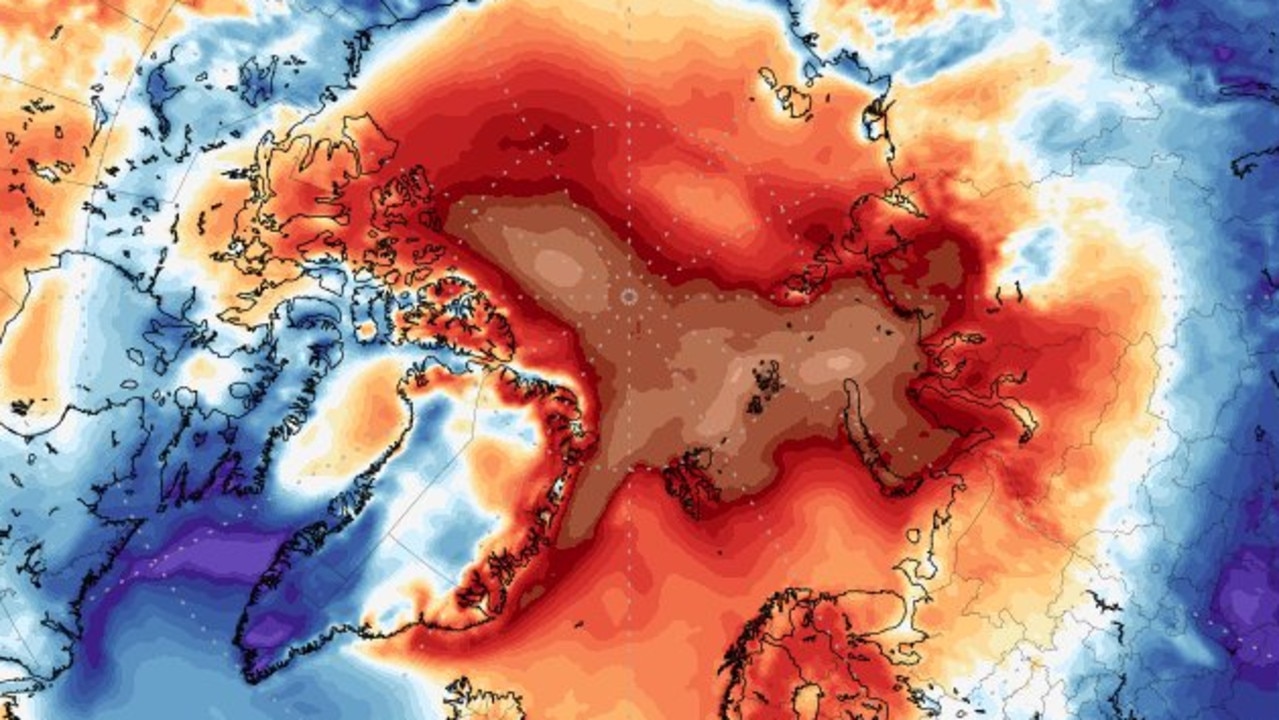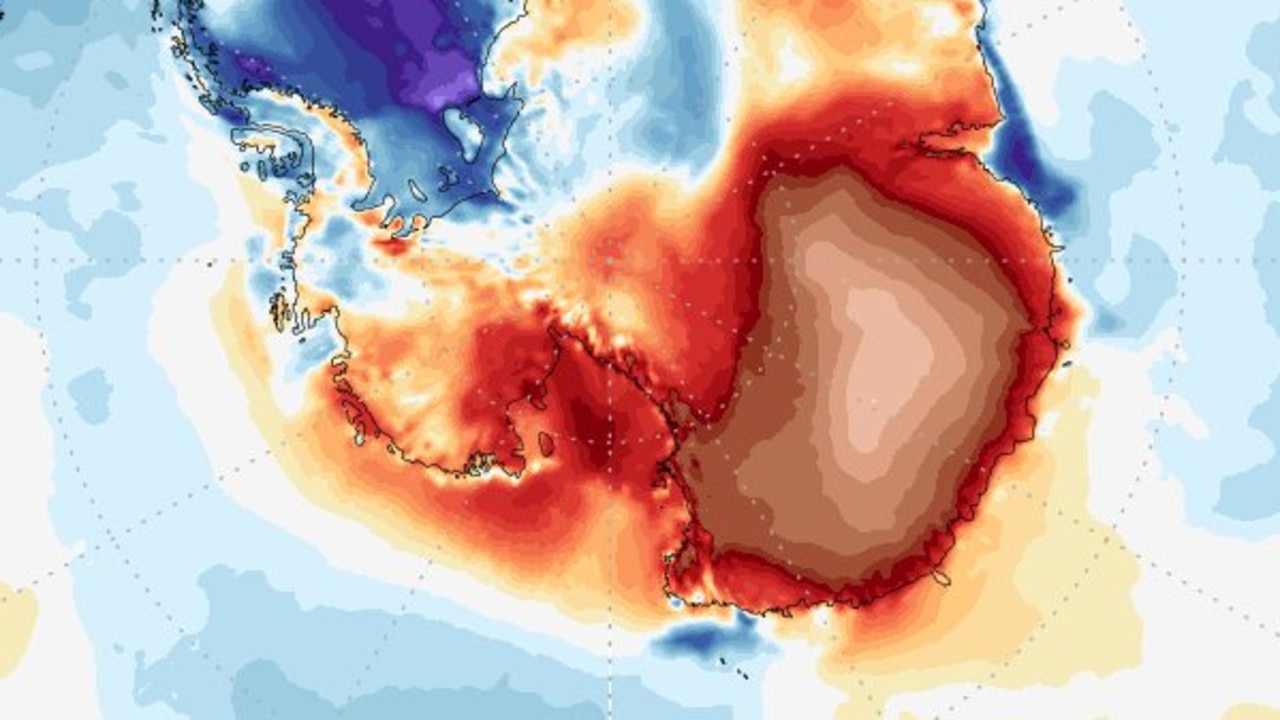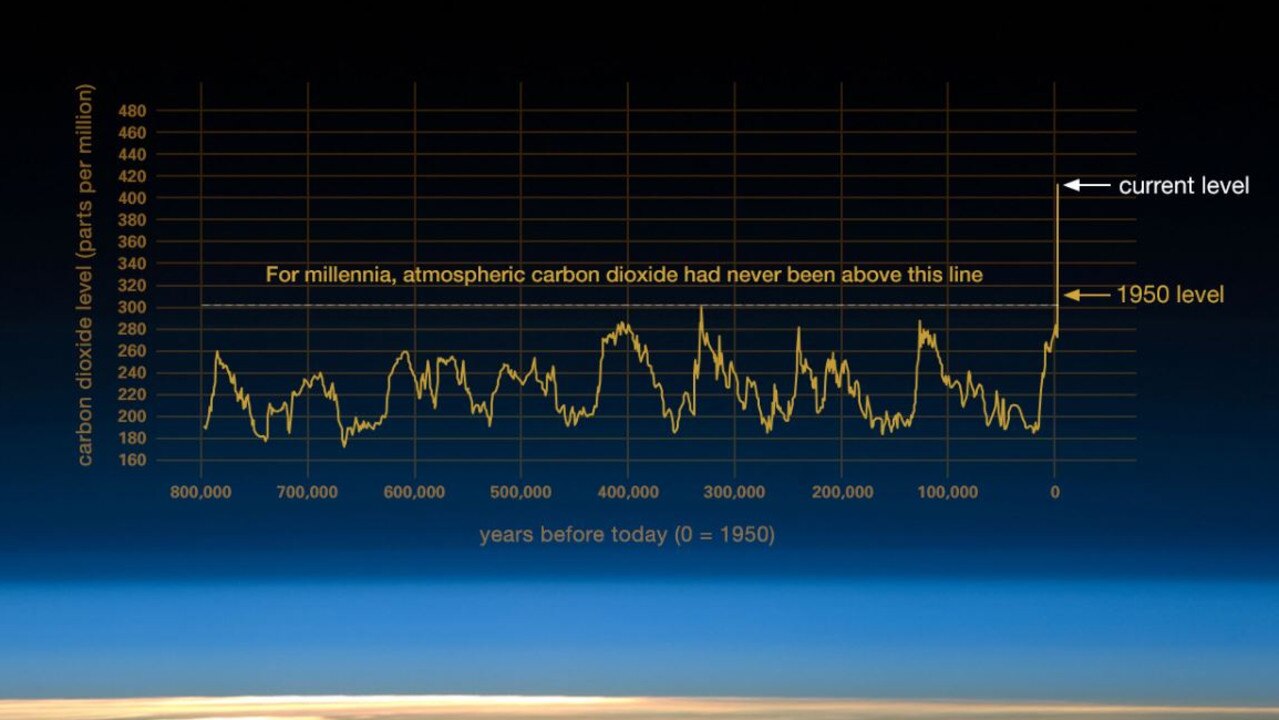Scientists stunned by ‘unthinkable’ temperature surge in Arctic, Antarctica
There has been an “unthinkable” simultaneous surge in temperatures in the Arctic and Antarctic, stunning scientists around the world.
An alarming heatwave is taking place simultaneously in the Arctic and Antarctic – a development described as “unthinkable” by scientists.
Records have been shattered in parts of Antarctica, with the temperature more than 40C warmer than average. Meanwhile in parts of the Arctic, the mercury shot up more than 30C higher than normal.
Stream more news on the environment with Flash. 25+ news channels in 1 place. New to Flash? Try 1 month free. Offer ends 31 October, 2022 >


On March 19 the Concordia weather station in Antarctica was at -12.2C, about 40C above average, climatologist Maximiliano Herrera reported.
The heatwave has stunned scientists.
“They are opposite seasons. You don’t see the north and the south (poles) both melting at the same time,” National Snow and Ice Data Centre scientist Walt Meier told NBC News.
“It is pretty stunning.”
Polar researcher Jonathan Wille told the Washington Post, “This event is completely unprecedented and up-ended our expectations about the Antarctic climate system.”
Researcher Stefano Di Battista wrote on Twitter, “Antarctic climatology has been rewritten.”
He described the temperature surge as “impossible” and “unthinkable”.
Remarkable extreme events ongoing in both the #Arctic and #Antarctic the last few days - related to the poleward transport of heat+moisture (separately)
— Zack Labe (@ZLabe) March 19, 2022
[Graphic from https://t.co/53SpSZcJCa] pic.twitter.com/qHU0u9HLt0
The heat wave on the Antarctic Plateau does not stop. On 19 March the high at Concordia was -14.5 °C (0424 UTC), at Vostok -22.2 °C (provisional data)
— Stefano Di Battista (@pinturicchio_60) March 20, 2022
Meanwhile at Dome Fuji AWS the minimum recorded -61.5 °C. At South Pole Station -57.0 °C pic.twitter.com/tLb5Ho0tyY
The freakish heat is believed to be a random weather event.
It has not been linked to climate change, according to meteorologist Matthew Lazzara and Dr Meier. But if the event is repeated, it would be a major concern and could be an indicator of climate change, they told NBC News.

The Arctic has warmed at about twice the rate as the entire globe over the past 30 years, which has been widely blamed on climate change.
The Intergovernmental Panel on Climate Change (IPCC) says the polar regions are being increasingly impacted by climate change, with sea ice thinning dramatically.
It is projected that Earth’s surface temperature will rise 1.5C above pre-industrial levels, perhaps within a decade.
A 1.5C cap on global warming – the aspirational goal of the 2015 Paris climate accord – has been embraced as a target by most of the world’s nations.
Current carbon-cutting commitments under the treaty, however, still puts the world on a catastrophic path towards 2.7C of warming by 2100.
The IPCC is set to report its next findings – mostly focused on mitigating climate change – on April 4.
– with AFP






